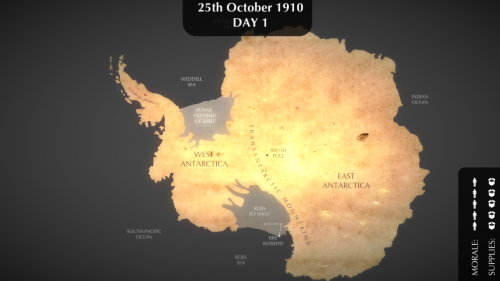Trending
Opinion: How will Project 2025 impact game developers?
The Heritage Foundation's manifesto for the possible next administration could do great harm to many, including large portions of the game development community.

Featured Blog | This community-written post highlights the best of what the game industry has to offer. Read more like it on the Game Developer Blogs or learn how to Submit Your Own Blog Post
A blog post about killing your projects and why maybe it isn't as bad as you think!

So I’ve stopped working on my previous game and added it to the game design scrapheap which grows bigger by the year.

The reasons are multiple and I’ll try to be frank about them below.
Un-ambitious design: The mechanics of the game are a known quantity
Dry subject matter: The setting of the game interests me in an academic sense but doesn’t necessarily make me excited
Skills mis-match: The game focused on narrative over mechanics, it’s outside my wheelhouse so to speak and I don’t plan to become a narrative designer anytime soon
Lack of motivation: Working on the project felt like making a game for the sake of it as opposed to being intrinsically motivated
Of those reasons the real killer for me is the un-ambitious design, that’s probably the main factor causing the lack of motivation. As a game designer there is a sweet spot of challenge that I try to work within; too broad and the possibilities are endless, too narrow and the decisions become rote. Essentially it was a game with narrative as opposed to mechanical design challenges and while it may be worth revisiting as an educational game for now it’s being moved to the dead projects folder or scrapheap as I like to call it.
The funny thing is that my game design scrapheap has more in it than the finished projects folder does. This worries me, why can’t I finish more games…
I’ve been thinking about this lately and I think I’ve gained some insight into what’s going on. You see, I grew up on a farm and my dad used to collect bits of scrap metal and old machinery in case it might be useful. He would take things apart because “you’d never know when they might come in handy”. The funny thing is that most of the parts were never used, our shed was filled with old bits and pieces. When I was growing up everything seemed like junk, stuff that would never be used, but now I understand the method to this madness (and it was madness). Whenever something did break on the farm or in the house my dad would go to the shed, find the parts he needed and fashion together a solution. He wasn’t a trained mechanic, plumber or electrician but he could fix these problems because of his experience taking things apart. I now realise that I’m at a similar place in terms of game design.
All along I’ve been viewing these projects as failures, things I tried to do but didn’t work out. Instead I’m going to focus on these as insights into my own game design process. These are game systems, programming concepts and narrative experiments that I can reference in future when I’m stuck on a tough design challenge. They are a repository of ideas that didn’t work and best of all I know why they didn’t work. I think they keep me honest. The bigger the scrapheap the more design knowledge I can draw on and I’ll always need more of that.
So here’s to the scrapheap, my collection of game design junk that may come in handy one day!
Read more about:
Featured BlogsYou May Also Like